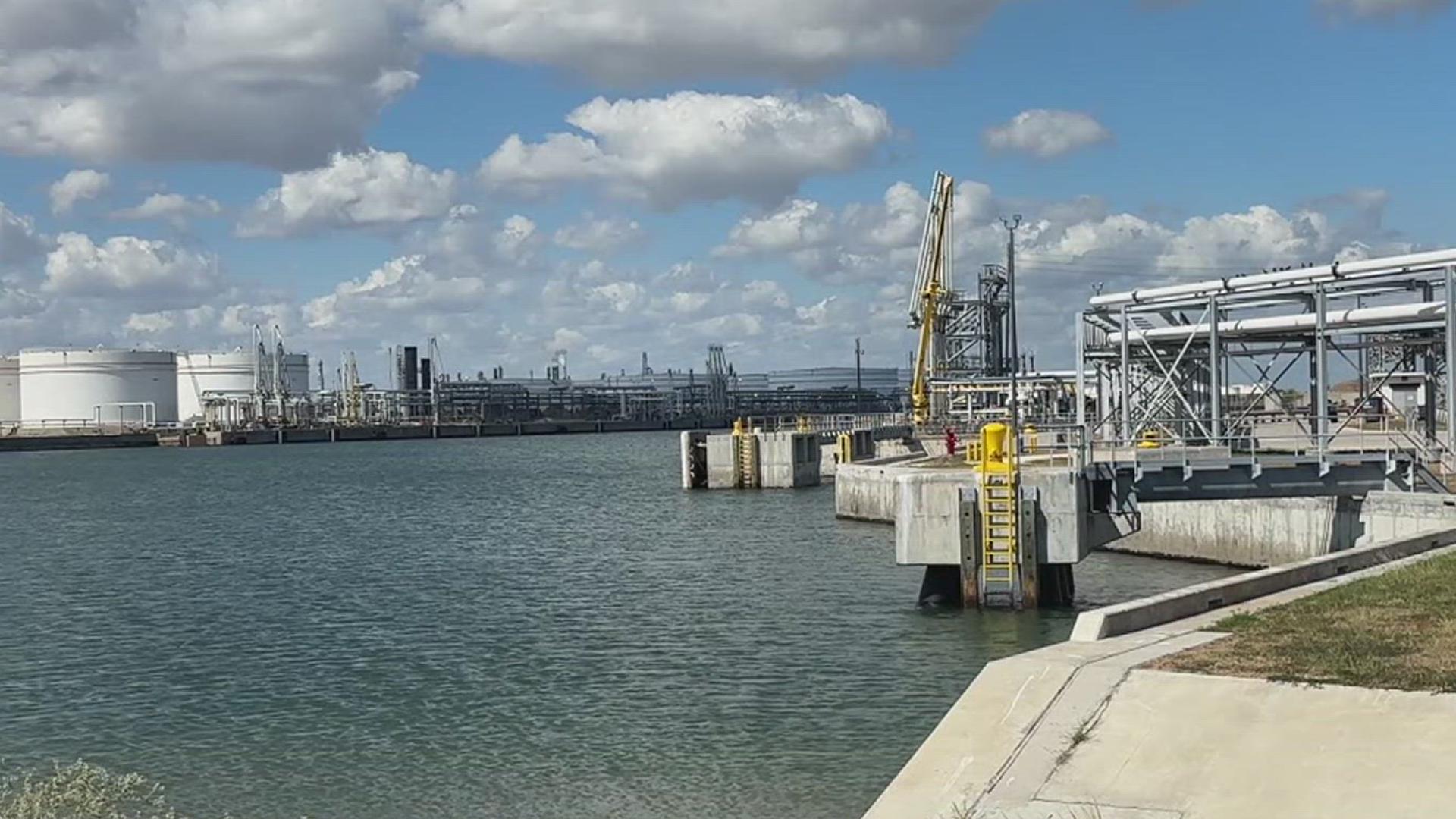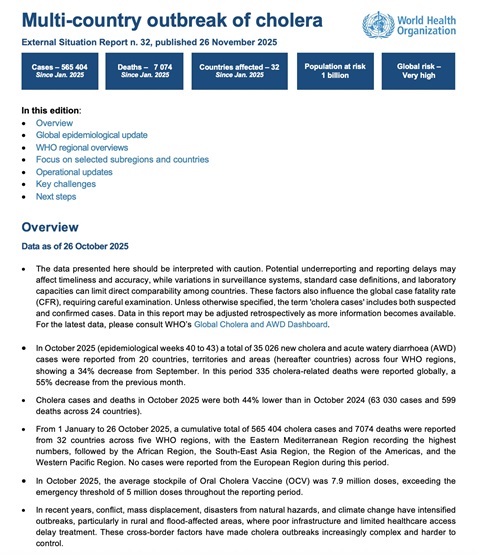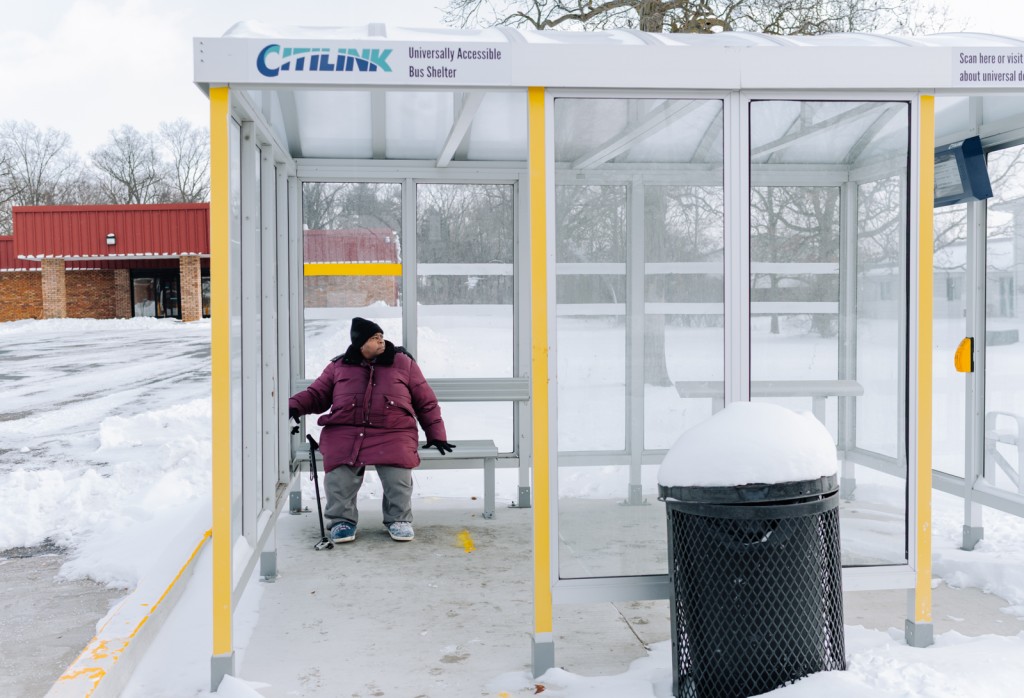City looking to buy a desal plant for some $650 million – kiiitv.com

Report on Corpus Christi’s Strategic Initiatives for Water Security and Sustainable Development
Introduction: Advancing SDG 6 – Clean Water and Sanitation
The City of Corpus Christi is actively pursuing advanced water security measures through desalination technology, a critical initiative aimed at ensuring a sustainable and reliable drinking water supply for its residents. These efforts directly address the objectives of Sustainable Development Goal 6 (SDG 6), which focuses on ensuring the availability and sustainable management of water and sanitation for all. On Monday, city leadership convened with the Nueces River Authority to discuss the financial and logistical frameworks for proposed desalination projects.
The Harbor Island Desalination Project: A Partnership for Sustainable Infrastructure
A primary option under consideration is a partnership with the Nueces River Authority for a future desalination plant on Harbor Island. This collaboration is a key example of SDG 17 (Partnerships for the Goals) in action, leveraging inter-agency cooperation to build resilient infrastructure (SDG 9) for a sustainable urban community (SDG 11).
- Proposed Capacity: The city aims to secure up to 50 million gallons of water per day from this facility.
- Financial Commitment: The Nueces River Authority has requested a $2.7 million non-refundable “reservation fee” from the city to reserve this capacity.
Negotiations and Financial Stewardship
City Manager Peter Zanoni has emphasized the need for swift action while ensuring fiscal responsibility and value for taxpayers. The city is exploring a proposal to have the reservation fee credited against future water utility payments once the plant becomes operational. This approach aligns with principles of responsible financial management in public infrastructure development.
The Nueces River Authority, represented by Executive Director John Byrum, has indicated that while they are open to discussion, any decision regarding a potential credit is a policy matter for its 21-member board.
Alternative Strategy: Acquisition of CC Polymers Facility
In parallel, the city is evaluating an alternative path to achieving its water security goals: the outright purchase of the existing CC Polymers desalination plant. This strategy would provide the city with direct ownership and operational control, enhancing its capacity for responsible production and consumption (SDG 12).
- Strategic Objective: To gain full control over a critical water production asset.
- Estimated Cost: The acquisition and necessary upgrades are estimated to cost approximately $650 million.
- Action Item: The City Manager intends to submit a formal letter of interest to CC Polymers, signaling the city’s serious consideration of this option.
Conclusion: A Multi-Faceted Approach to Urban Sustainability
Corpus Christi’s dual-track approach to desalination underscores a comprehensive strategy to fortify its water future. Both the Harbor Island project and the potential CC Polymers acquisition are significant undertakings that align with multiple Sustainable Development Goals, positioning the city as a proactive leader in building a resilient and sustainable community.
Sustainable Development Goals (SDGs) Addressed
-
SDG 6: Clean Water and Sanitation
The core theme of the article is the effort by the city of Corpus Christi to secure a new, reliable source of drinking water through desalination. This directly addresses the goal of ensuring the availability and sustainable management of water.
-
SDG 9: Industry, Innovation, and Infrastructure
The article discusses the construction and potential purchase of large-scale infrastructure projects, specifically desalination plants. These plants represent an innovative technological solution to water scarcity and are critical for the city’s future development.
-
SDG 11: Sustainable Cities and Communities
Securing a long-term water supply is fundamental to making a city resilient and sustainable. The actions described in the article are aimed at guaranteeing the city’s water future, which is essential for the well-being of its inhabitants and its ability to withstand challenges like drought.
-
SDG 17: Partnerships for the Goals
The article highlights the collaboration and negotiation between different public entities—the City of Corpus Christi and the Nueces River Authority—to achieve the common goal of water security. This partnership is crucial for mobilizing the resources and making the policy decisions needed for the project.
Specific Targets Identified
-
SDG 6: Clean Water and Sanitation
- Target 6.1: By 2030, achieve universal and equitable access to safe and affordable drinking water for all. The city’s push to secure “up to 50 million gallons a day” from a new desalination plant is a direct effort to ensure a continuous and safe water supply for its population.
- Target 6.4: By 2030, substantially increase water-use efficiency across all sectors and ensure sustainable withdrawals and supply of freshwater to address water scarcity. The entire initiative is a response to water scarcity, aiming to create a new, sustainable supply of freshwater through desalination to “guarantee Corpus Christi’s water future.”
- Target 6.b: Support and strengthen the participation of local communities in improving water and sanitation management. The meeting between city leaders, like City Manager Peter Zanoni, and the Nueces River Authority demonstrates local governance and stakeholder participation in managing the region’s water resources.
-
SDG 9: Industry, Innovation, and Infrastructure
- Target 9.1: Develop quality, reliable, sustainable and resilient infrastructure… to support economic development and human well-being. The proposed desalination plants on Harbor Island and the CC Polymers facility are significant, resilient infrastructure projects designed to provide a reliable water supply, which is essential for human well-being.
-
SDG 11: Sustainable Cities and Communities
- Target 11.5: By 2030, significantly reduce the number of… people affected… by disasters, including water-related disasters. By investing in a drought-proof water source like desalination, the city is building resilience against water-related disasters such as prolonged droughts, thus protecting its population.
-
SDG 17: Partnerships for the Goals
- Target 17.17: Encourage and promote effective public, public-private and civil society partnerships. The negotiation between the City of Corpus Christi and the Nueces River Authority over the “$2.7 million non-refundable ‘reservation fee'” is a clear example of a public-public partnership working to implement a large-scale infrastructure project.
Indicators for Measuring Progress
- Volume of new water supply: The article explicitly mentions the goal of securing “up to 50 million gallons a day” from the Harbor Island plant and a potential total of “450-million-gallons a day” from a larger plan. This is a direct quantitative indicator of progress towards increasing the freshwater supply (relevant to Target 6.4).
- Financial investment in water infrastructure: The article cites specific financial figures, such as the “$2.7 million non-refundable ‘reservation fee'” and the potential “$650 million” cost to buy the CC Polymers plant. These figures serve as indicators of the financial commitment to developing new, resilient infrastructure (relevant to Target 9.1).
- Implementation of local water security strategy: The actions described, such as meeting with the River Authority and submitting a letter of interest to buy a plant, are indicators of the city’s progress in implementing a strategy to ensure long-term water security and resilience against drought (relevant to Target 11.5).
- Establishment of formal agreements: The negotiation over the reservation fee and the potential purchase of a plant are steps toward a formal partnership agreement. The successful execution of such an agreement would be an indicator of an effective partnership (relevant to Target 17.17).
Summary Table: SDGs, Targets, and Indicators
| SDGs | Targets | Indicators Identified in the Article |
|---|---|---|
| SDG 6: Clean Water and Sanitation | 6.1: Achieve access to safe and affordable drinking water. 6.4: Ensure sustainable supply of freshwater to address water scarcity. |
Volume of new water to be secured (“up to 50 million gallons a day”). |
| SDG 9: Industry, Innovation, and Infrastructure | 9.1: Develop quality, reliable, sustainable and resilient infrastructure. | Financial investment in desalination plants (“$2.7 million” fee, “$650 million” purchase cost). |
| SDG 11: Sustainable Cities and Communities | 11.5: Reduce the number of people affected by water-related disasters. | Implementation of a strategy to “guarantee Corpus Christi’s water future” against drought. |
| SDG 17: Partnerships for the Goals | 17.17: Encourage and promote effective public-public partnerships. | Negotiations and potential agreements between the City of Corpus Christi and the Nueces River Authority. |
Source: kiiitv.com
What is Your Reaction?
 Like
0
Like
0
 Dislike
0
Dislike
0
 Love
0
Love
0
 Funny
0
Funny
0
 Angry
0
Angry
0
 Sad
0
Sad
0
 Wow
0
Wow
0















































































